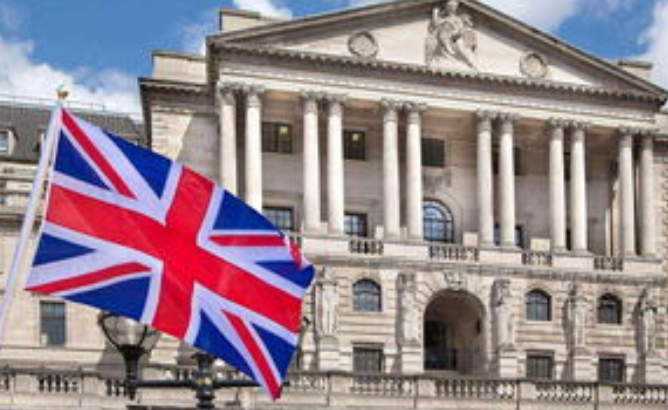Sustained inflation in various countries makes the world economy unsustainable
 2023-02-17
2023-02-17
 1009
1009
[British Defense Secretary said that the defense budget needs to be increased by 11 billion pounds]
According to British media reports, British Defense Secretary Wallace stated that an additional defense budget of 11 billion pounds (about 91 billion yuan) is needed to deal with external "threats". Wallace said that fighting for more defense budget with the Treasury was "like a war", and the British Treasury will announce the results of the budget next month. The "Times" reported that the British Ministry of Defense was wasting budgetary spending while applying for a budget increase.
[The Bank of England aims to keep the inflation rate at 2%]
Inflation remains close to a 40-year high, although the pace of UK price rises has eased slightly. In response, the Bank of England has raised interest rates to 4%, the highest level in 14 years; the Bank of England aims to keep inflation at 2%, but the current rate is still more than five times that level. Its traditional response to rising inflation is to raise interest rates. That makes borrowing more expensive, and could mean some people with mortgages see their monthly payments rise and their savings rates rise, leading to less consumer spending.

[The trade deficit of the euro zone shrank in December]
The trade deficit in the euro area narrowed in December, and on a full-year basis, exports rose 18.0% over 2021, reflecting improved trade conditions post-pandemic, but imports rose 37.5%, likely reflecting Russia and Ukraine Energy import costs rise during conflicts. In 2021, the EU recorded a trade surplus of 116.4 billion euros, but last year it turned into a trade deficit of 314.7 billion euros.
[The hawkish stance of the RBA loses to the cooling of risk appetite]
As the prospect of persistently higher U.S. interest rates weighed on risk sentiment, although the prospect of further rate hikes in Australia provided some support. U.S. consumer price data showed that inflation did not fall as quickly as many had expected, prompting Fed officials to warn that further tightening is needed. The same is true for the domestic outlook, with RBA Governor Philip Lowe warning that interest rates must rise to curb demand and ensure inflation falls. The RBA's recent hawkish turn has markets rushing to reassess the outlook for future rate hikes, with the cash rate now at 3.35% expected to peak at around 4.20%, compared with 3.60% expected a month ago.
[The Japanese government nominated Kazuo Ueda as the new governor of the central bank]
The Japanese government has nominated Kazuo Ueda as the new central bank governor, a surprise choice that investors bet may rule out an end to an unpopular yield control policy. Japan's economy dodged a recession in the fourth quarter but rebounded much less than expected as business investment slumped, meaning unwinding stimulus will be a challenge for the Bank of Japan. This shows that within this year, whether the Bank of Japan can end its loose monetary policy still needs to be marked with a big question mark.
[The persistence of high inflation in the United States]
The headline U.S. consumer price index (CPI) rose 0.5% in January, in line with expectations, boosting bets that interest rates will stay higher for longer. On an annualized basis, U.S. CPI fell to 6.4% in January from 6.5% previously, but was still above expectations for 6.2%. What's more, the core CPI, which excludes food and energy prices, was also higher than expected at an annual rate of 5.6%.
[Fed officials continue to release eagles]
Dallas Fed President Lori Logan said: “If such an approach is necessary to respond to a change in the economic outlook or to offset any unwelcome easing of financial conditions, we must be prepared for a sustained period of rate hikes. longer than previously expected. ” And pointed out that because the unusually strong labor market has pushed up wages and maintained high inflation, the Fed should not lock in the end point of raising interest rates in advance.
[The trend of de-dollarization is gaining momentum]
Central bank buying will continue to be a factor limiting gold's decline. Global official gold purchases soared to an all-time high of 1,136 tonnes in 2022. The ANZ report said heightened geopolitical risk, currency depreciation and credit defaults were all drivers of the central bank's desire to diversify its reserves.
The above information is provided by special analysts and is for reference only. CM Trade does not guarantee the accuracy, timeliness and completeness of the information content, so you should not place too much reliance on the information provided. CM Trade is not a company that provides financial advice, and only provides services of the nature of execution of orders. Readers are advised to seek relevant investment advice on their own. Please see our full disclaimer.

CM Trade
As a world leading financial trading platform, CMtrade Provides comprehensive one-stop trading services and opportunities for traders.
[Products]
The platform provides over 32 kinds of popular financial products such as forex, precious metals, crude oil, indices, cryptocurrencies and more.
[System]
2 top trading systems CM Trade MT4 / CM Trade APP, powerful and easy to operate
[Service]
Comprehensive market news, professional market analysis, 7*24 hours online customer service
[Advantage]
Low cost, high leverage, flexible one-stop all day two-way trading.
[Authority]
Licensed and strictly regulated by authorities. Traders deposits are independently kept by the bank. Fast deposit and withdrawal. Fair, efficient and transparent trading environment.
CM Trade Mobile Application
Economics Calendar
MoreYou May Also Like



 简体中文
简体中文
 ภาษาไทย
ภาษาไทย
 繁體中文
繁體中文
 Indonesia
Indonesia











